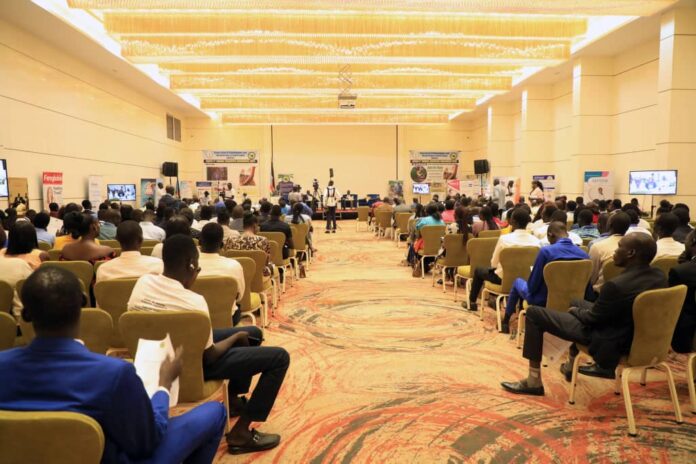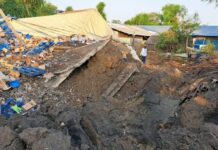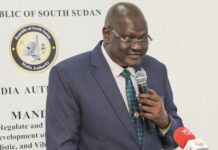
Senior policymakers, health professionals, and medical associations closed the 4th Annual Scientific Conference of the Association of Gynecologists and Obstetricians of South Sudan (AGOSS) with strong calls for improved health financing, emergency care reforms, the protection of medical workers, and greater professional collaboration.
Held at the Pyramid Hotel in Juba, the conference brought together specialists from across South Sudan and regional delegates from Kenya, Ethiopia, and Rwanda, Canada.
The event highlighted the growing scientific visibility of AGOSS and the urgent need to strengthen maternal, neonatal, and reproductive health systems.
AGOSS President Dr. Zakaria praised the association’s expanding influence and partnerships with global medical bodies, UN agencies, and universities.
He emphasized that AGOSS continues to play a central role in maternal health research, guideline development, and capacity building across the country.
Chairperson of the TNLA Health Committee, Hon. Dr. Benjamin Malek, called for increased investment in hospitals and emergency response systems. He warned that despite the presence of skilled professionals, health facilities lack basic supplies, forcing patients to buy consumables during critical moments.
He also raised concerns about the arrest and harassment of doctors due to a lack of medico-legal clarity, urging the establishment of a national forum between parliament, the judiciary, and medical associations.
Rev. Janet Michael, Director General for Nurses and Midwives, expressed concern over the poor quality of care in both public and private facilities despite rising numbers of trained personnel.
She urged medical staff to change attitudes toward emergencies, noting that delays in treating bleeding mothers have led to preventable deaths. “We must act fast and recognize danger,” she said, appealing for improved commitment and accountability.
One of the strongest appeals came from Dr. Adut Jervase, Deputy Chairperson of the South Sudan Doctors’ Union (SSDU). She praised AGOSS for elevating South Sudan’s scientific profile but warned that professionals cannot provide quality services without essential tools and supplies.
She also highlighted a major concern: many frontline health workers have gone four months without receiving their incentives, calling it a crisis that must be urgently addressed.
As the country prepares its new national budget, she urged parliament to align health financing with the Abuja Declaration and prioritize the welfare of medical personnel.
The conference ended with renewed commitment to scientific collaboration, strengthening emergency care, and advancing maternal health reforms across South Sudan.




